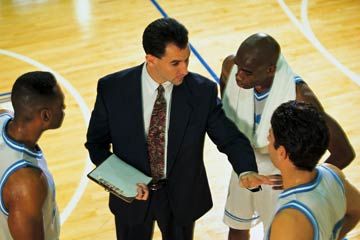"If you build it, they will come," the voices whispered to Ray Kinsella in the movie "Field of Dreams." In Ray's case, after he'd obeyed the voices and built the field, ghosts from baseball's past wandered out of the corn to play under the lights. In your case, things probably won't be quite so otherworldly. But some variation of the same story may nevertheless play out.
For example, perhaps it turns out that the guy who works two cubicles down from you has a great fastball nobody knows about. Or maybe your 40-year-old next door neighbor played college ball and he's been missing the smell of his glove ever since. Or, what if your kid and his friends at school are budding ballplayers -- only they need a league to give them the opportunity to perform?
Advertisement
Maybe it's up to you -- yes, you, "Ray" -- to listen to that inner voice and bring baseball to your community.
The question is, where in the world do you start? We won't lie to you. Starting and operating a league requires a lot of work. In fact, it's not unlike running a business. You'll have to deal with finances, permits, managing people and delegating jobs. And you'll need to check your community laws and regulations to ensure you're going down the right path. In addition, it helps to find a league nearby that you'd like to emulate, and get some advice and tips from people who have already done it.
And most importantly, you'll need some cash flow. Learn more about that on the next page.
Advertisement




